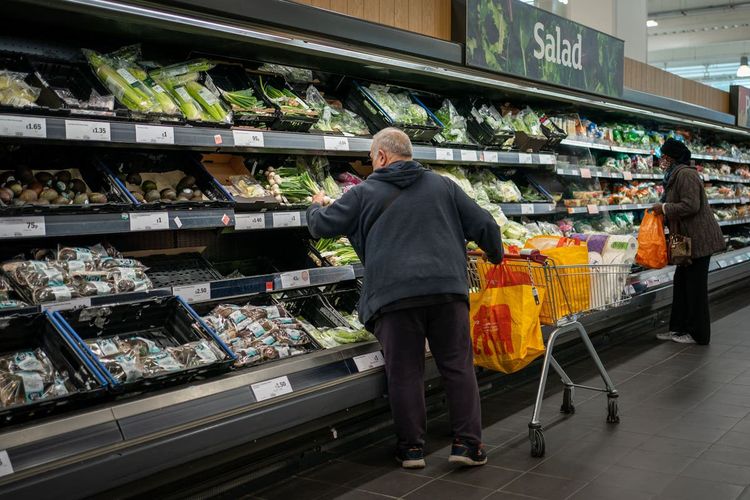Fresh food prices help retail inflation to slow in August, new figures suggest

Get Global News From Our Reporters With The Free Morning Headlines Email
Get Our Morning Headlines Email For Free
New data has revealed that the increase in prices at British stores has decelerated to its lowest level since last October. However, there is still a significant upward trend in prices.
On Tuesday, the British Retail Consortium (BRC) shared a report stating that prices experienced a 6.9% increase in the year leading up to August, which is a slight decrease from the 8.4% rise observed in July.
This doesn't imply that items are becoming more affordable; it simply indicates that their prices escalated at a slower rate from September 2022 to August 2023 compared to the period between August 2022 and July 2023.
According to the BRC, the primary cause of the decline in retail inflation was the slower growth in fresh food prices.
The rate at which the price of fresh food increased decreased to 11.6 percent in August, compared to the 14.3 percent increase in July.
The rate of price increase for ambient foods, which are products that do not require refrigeration, decreased from 12.3% in July to 11.3% in August.
Food price inflation decreased from 13.4 per cent to 11.5 per cent in general. The British Retail Consortium (BRC) stated that inflation for items other than food remained steady at 4.7 per cent.
The CEO of the consortium, Helen Dickinson, announced some positive updates for consumers, stating that the inflation of shop prices in August decreased to its lowest point since October 2022.
This was caused by a decrease in food prices, specifically for items like meat, potatoes, and certain cooking oils.
The statistics would have shown even smaller numbers if the authorities hadn't raised the taxes on alcohol just a few weeks ago.
According to her, crucial elements of personal care products and beauty items were now more affordable, contributing to a reduction in price hikes within these sectors.
However, the cost of clothing and footwear went up as the summer sales concluded.
Although retailers are making efforts to reduce inflation, they still need to be wary of potential risks in their supply chain.
Russia deciding to no longer participate in the Black Sea Grain Initiative and their focus on attacking Ukrainian grain facilities, along with subpar harvests in Europe and other regions, may pose challenges in reducing inflation.
A possible increase of £400 million in business rates bills starting in April of the next year would definitely threaten the efforts to address inflation if the Chancellor does not step in.









































